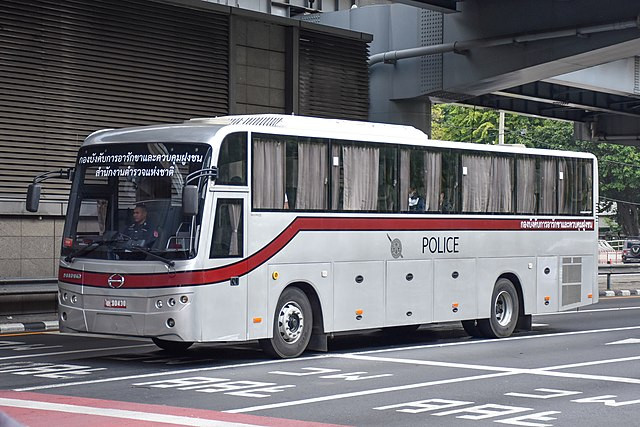Thailand deported 40 Uyghur detainees to China on Thursday, a move that has drawn sharp condemnation from human rights groups and U.S. officials who had urged Bangkok to halt the repatriation over concerns of potential torture and imprisonment. The deportees were part of a larger group of more than 300 Uyghurs who were detained in Thailand in 2014 after fleeing China.
The Thai national police chief, Kitrat Phanphet, confirmed the deportation, stating that Chinese officials "showed the sincerity and the intention to take care of this group of Chinese Uyghurs." The Chinese Ministry of Public Security also confirmed that 40 Chinese nationals who had entered Thailand illegally had been returned but did not specify whether they were Uyghurs.
Rights advocates have warned for months that Uyghurs forcibly repatriated to China face severe human rights abuses. Elaine Pearson, Asia director at Human Rights Watch, called the deportation "a blatant violation of Thailand's obligations under domestic and international laws." She added, "The men now face a high risk of torture, enforced disappearance, and long-term imprisonment in China."
Photos published by Thai media showed blacked-out trucks leaving an immigration center in Bangkok early Thursday. Data from flight tracker Flightradar24 indicated that an unscheduled China Southern Airlines flight took off from Bangkok's Don Mueang Airport at 4:48 a.m. local time, arriving six hours later in Kashgar, Xinjiang, a region where Chinese authorities have been accused of mass detentions of Uyghurs.
The United Nations had previously warned that the deportation of Uyghur detainees would put them "at real risk of torture or other cruel, inhuman or degrading treatment or punishment." The U.S. and other Western governments have labeled China's policies against Uyghurs, including mass internments and forced labor, as genocide.
Thai Prime Minister Paetongtarn Shinawatra did not confirm the deportations when questioned earlier in the day, stating, "This sort of issue, for any country, one has to follow the law, international process, and human rights." Thai lawmakers, however, expressed outrage. Opposition lawmaker Kannavee Suebsang criticized the decision on social media, writing, "What is the Thai government doing? We have violated their human rights more than enough. There must be a better resolution."
The Thai government had previously stated there were no plans to deport the Uyghurs, yet activists and U.S. officials had warned for weeks that the move was imminent. Secretary of State Marco Rubio, a longtime critic of China's human rights record, had told lawmakers during his confirmation hearing last month that he would lobby Bangkok to prevent the deportations.
The deportation echoes a similar case in 2015 when Thailand sent more than 100 Uyghurs to China, drawing global condemnation. At the time, the fate of those deportees remained unknown. The remaining Uyghurs from the 2014 group were sent to Turkey, while 53 were left in Thai detention facilities.
According to United Nations human rights experts, five of the 53 Uyghurs who remained in Thailand have since died, including two children. Nearly half of the remaining detainees reportedly suffer from serious medical conditions, including diabetes, kidney dysfunction, and heart and lung diseases.
Activists have long criticized Thailand's treatment of Uyghur detainees, stating that they have been denied access to legal representation, family members, and international organizations. A 2023 letter from U.N. experts to the Thai government said that the country's treatment of Uyghurs could constitute a violation of international law.






